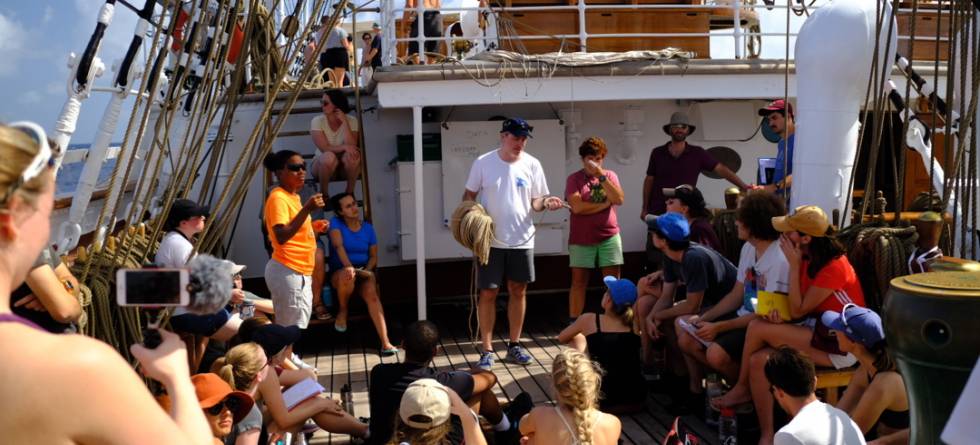Listen to the podcast episode here:
As part of the One Ocean Expedition, an interdisciplinary student group from 8 different universities studied onboard Statsraad Lehmkuhl from Curacao to Havana to get a first-hand experience of the consequences of climate change.
Common understanding around climate change
Kerim Nisancioglu, professor at UiB and researcher leader at the Bjerknes Centre, brought along his students to the three-week cross-disciplinary course SDG313. The aim of the course was to connect Caribbean, American and Norwegian students in a common understanding around causes, consequences, and solutions to climate change.
- It’s nearly impossible to fully understand the consequences of climate change from home. Having a first-hand experience where climate change is more visible, apparent and devastating, like the Caribbean, is important to get a proper understanding, Nisancioglu says.
Recreating oceanographic measuring methods
During the field course Nisancioglu’s students exchanged knowledge with local students and learned about climate hazards particular to the tropics, such as extreme precipitation, rising sea level, storm surge, and threads against mangroves. In addition, the students got a chance to recreate oceanographic measuring methods onboard, conducted 150 years ago at the Challenger Expedition.
- The ship had a huge, stable working environment on deck, perfect for recreating old measuring experiments. By using hemp ropes to measure deep ocean temperature, we wanted to give the students a physical understanding of how oceanography was conducted in the past, before the rapid rise in atmospheric greenhouse gases, Nisancioglu explains.
The Bjerknes Climate Podcast:
The podcast is produced by Stephen Outten and Ingjald Pilskog. Stephen Outten is a researcher at Nansen Environmental and Remote Sensing Center and Bjerknes Centre for Climate Research. Ingjald Pilskog is an associated professor at Western Norway University of Applied Sciences and connected to the Bjerknes Centre for Climate Research.
You can find all the episodes of the Bjerknes Climate podcast here. Find more episodes of the Bjerknes Climate podcast on Podbean, Apple, Spotify, or wherever you get your podcasts.

